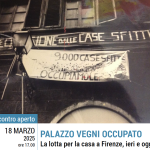
TEAM
Lorenzo Zamponi and Federica Guardigli
START YEAR 2023
END YEAR 2025
ReFuture investigates the comeback of the need for political planning and its role in revitalising democratic governance. After decades in which politics was mainly interpreted as day-to-day administration, an era of impending emergencies requires to build new capacities: thinking about possible futures is key to maintaining democracy’s ability to act and plan vis-à-vis epochal challenges like climate change or the COVID-19 pandemic. The decline in the planning capacity that has characterised Western democracies since the end of the 20th century appears to be replaced by a resurgence of the need for political planning, in many forms, including institutional responses in the form of the Next Generation EU (NGEU) programme and increasing focus of grassroots civil society actors both on proposing alternatives to institutions and the public, and on practicing such alternatives in prefigurative experiences.
ReFuture investigates this “return of the future” in the Italian case, through an interdisciplinary effort which includes intellectual and political history, economics, and social movement studies. Italy was one of most heavily affected countries in the world by the COVID-19 pandemic. The Italian government was among the chief proponents of the NGEU programme within the EU framework, and the National Recovery and Resilience Plan (NRRP) launched in 2021 within this framework represents an intersection between the response to the pandemic crisis and the project of an “ecological transition” meant to address the climate emergency. Which forms is the return of the future, and thus the comeback of the most traditional democratic tool to address it (i.e. political planning), taking within the Italian political context? Our project aims to answer this question by focusing on three different spheres: the intellectual and political debate, state policy, and grassroots civil society. First, through the lenses of intellectual and political history, we will investigate the role of political planning in European liberal democracies in the first part of 20th century, its crisis in the neoliberal era, and its current state in the intellectual and political debate. Secondly, through the lenses of general equilibrium model, we will assess the impact of the planning policies put in place through NGEU and the NRRP on the institutions involved in addressing the pandemic and the ecological transition. Thirdly, through the lenses of social movement studies, we will analyse the visions of the future, planning practices, and prefigurative experiences of grassroots civil society actors vis-à-vis the COVID-19 pandemic and the climate emergencies. All in all, the project aims to provide a comprehensive understanding of the way in which actors in the Italian society are developing tools to address the future in a context of impending emergencies, and of the potential of such tools for revitalising democracy.
SNS research unit: Lorenzo Zamponi (Princial Investigator), Federica Guardigli
Other research units: Maria Chiara D’Errico (Università di Perugia), Michele Filippini (Università di Bologna)
FUNDING
Italian government (PRIN 2022)
28/03/2025

Journal Article - 2025
Journal Article - 2023
Journal Article - 2023
Journal Article - 2023
Journal Article - 2023
Monograph - 2023
Monograph - 2022
Monograph - 2022
Journal Article - 2021
Journal Article - 2021